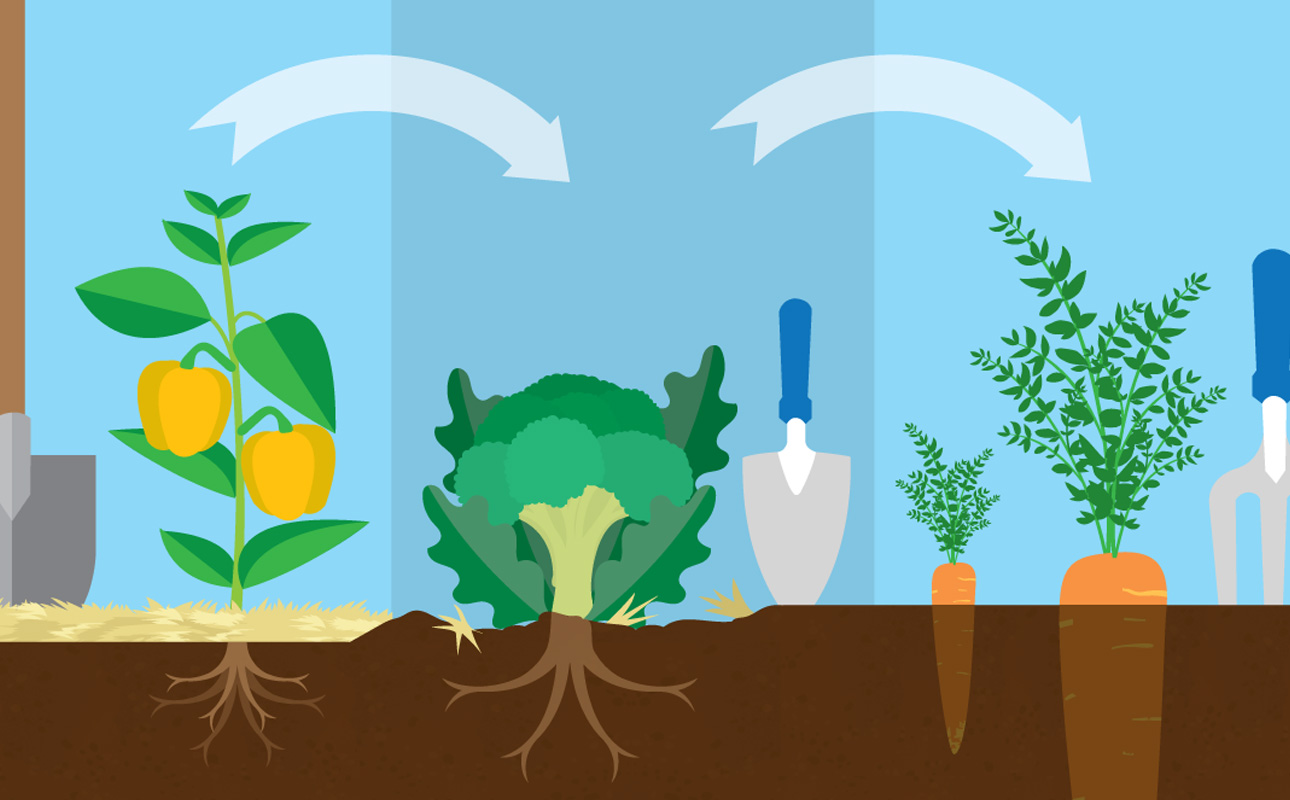Soil rotation is a farming practice that involves growing different crops in a specific area of land in a sequential manner. The goal of soil rotation is to improve soil health and fertility, control pests and diseases, and improve crop yields.
Here is an example of how soil rotation can work:
-
Select a number of different crops to rotate through your farming area. These might include annual vegetables, grains, and legumes.
-
Divide your farming area into sections and assign a different crop to each section.
-
Plant the crops in each section according to your rotation plan. For example, you might plant annual vegetables in one section one year, grains in that same section the following year, and legumes in the third year.
-
After each crop is harvested, prepare the soil for the next crop in the rotation by adding compost or other organic matter and adjusting the pH as needed.
By rotating your crops in this way, you can help to improve the fertility and health of your soil over time, which can lead to better crop yields.
There is no "correct" soil rotation order that works for all farms and all types of crops. The best soil rotation plan for your farm will depend on a variety of factors, including your local climate, soil conditions, and the types of crops you are growing.
Here are a few general principles to consider when developing a soil rotation plan:
-
Alternate between crops with different nutrient needs: Different crops have different nutrient requirements, so rotating between crops with different needs can help to ensure that the soil has a balanced supply of nutrients.
-
Rotate between crops from different plant families: Different plant families have different pest and disease susceptibilities, so rotating between crops from different families can help to reduce the build-up of pests and diseases in the soil.
-
Avoid planting the same crop in the same location year after year: Planting the same crop in the same location year after year can lead to the build-up of pests and diseases, as well as soil nutrient imbalances.
For advice and help in planning this join our community, we will connect you with a local extension agent or a knowledgeable farmer when developing a soil rotation plan for your farm. we will help you identify the specific crops and rotation patterns that will work best for your location and farming goals.

